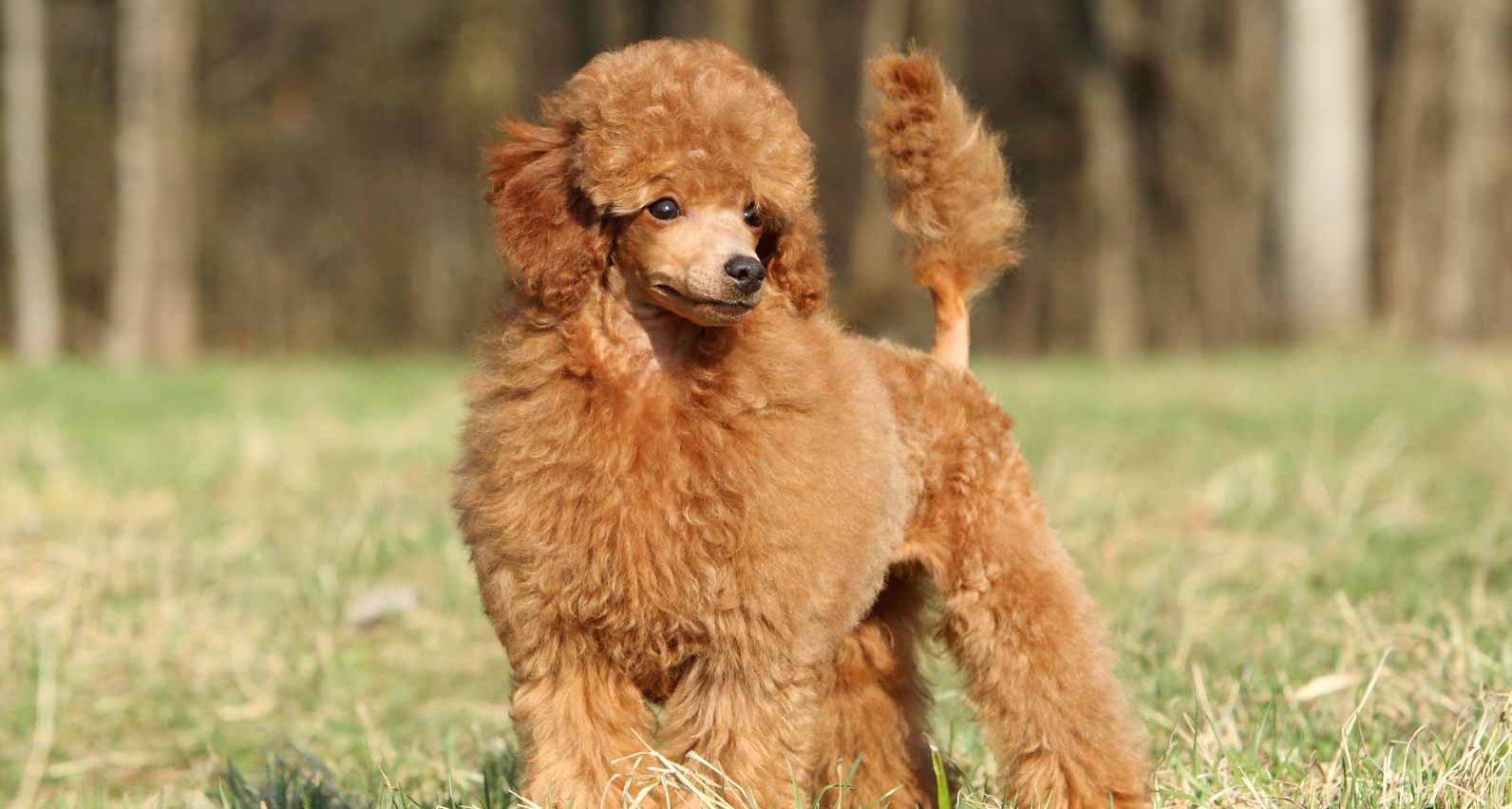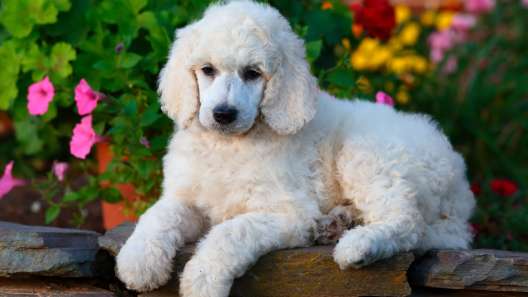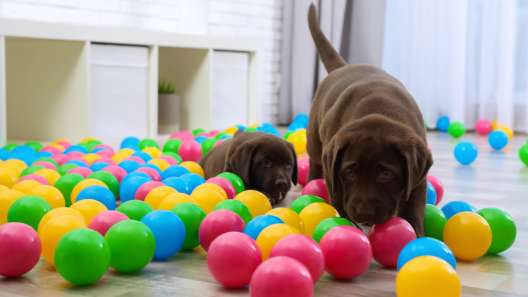-
Activity Level:
moderate
-
Shedding Level:
low
-
Grooming Level:
high
-
Trainability:
high
-
Good for Novice Owners:
high
-
Adaptability:
high
-
Kid/Pet Friendly:
sometimes
-
Prey Drive:
moderate
-
Watchdog:
aware
- Average Size: Small
- Average Lifespan: 10-18 years
- Registered?: aca, akc
Toy Poodle Dog Breed Information
Overview
Temperament
Adaptability
Health
Owner Experience
Grooming
Activity Level
Size
Life Span
Did You Know?
Breeders developed Miniature Poodles in 18th-century England as smaller versions of their standard-sized German predecessors. These tiny, regal dogs were favored by King Louis XVI and often featured in his court.
Poodles began to represent social status, and nobles would decorate their dogs in high fashion of the time. There were also movements to breed them even smaller than the existing Minis of the time. The Toy Poodle as we know it today was bred in the early 20th century in the United States. They were mostly fashionable companion dogs for city dwellers.
Toy Poodles became so popular, in fact, that they were one of the first toy breeds recognized by the Kennel Club. The American Kennel Club also recognizes the Toy Poodle as a member of the Toy Group. Poodles of all sizes are still one of the most popular dog breeds.
Toy Poodles are affectionate little dogs that bond closely with their families and love nothing more than being around them. They thrive on attention and affection from their favorite people. Well-socialized, they get along well with children, other dogs, other pets, and even strangers.
Because they are so small, especially as puppies, Toy Poodles can be easily injured by trips, falls, or accidental rough play. As such, they tend to be a better fit for older children who have mastered motor control, have better balance and coordination, and who know how to interact properly and gently with dogs. Regardless, all interactions between young kids and puppies should be closely supervised.
Although these little dogs can be initially wary of strangers at first, well-socialized Toy Poodles tend to warm up quickly once introduced. After all, they love attention and are usually happy to receive adoration no matter the source. They will bark to alert you and can be prone to barking a lot, especially if they have been trained into it. Socialization early on and training your dog to stop barking can help keep it from becoming a nuisance.
Toy Poodles are highly adaptable little dogs. They adapt well to apartment living as well as larger homes. As with any dog breed, they are sensitive to heat. Due to their small size, they get cold easily and will likely need to bundle up in some winter dog products to stay warm while out on walks in the cold.
Because these dogs are so social and bond so closely with their families, they do not do well with a lot of alone time. They can also develop separation anxiety if you do not work with them on it early on. Toy Poodles also get bored easily, so they should not be left alone for long periods of time anyway. If you do have to leave them alone for a short period, challenging games and toys can help keep them occupied.
Potential health concerns to be aware of in Toy Poodles can include hip dysplasia, von Willebrand’s disease, eye disorders, sebaceous adenitis, patellar luxation, Idiopathic epilepsy, Legg-Calve-Perthes, and occasionally, immune-mediated disorders.
Good breeding practices and the health of the parents make a big difference in the health of Toy Poodle puppies. It’s also important to remember that there are big responsibilities that come with owning little dogs and they will need extra attention and careful care.
Reputable breeders will screen their dogs before breeding to make sure they are not passing avoidable issues to puppies. Make sure you ask about the health and genetic history of both parents. You can also ask about any health tests or clearances that have been done.
The Poodle Club of America recommends DNA tests for Progressive Retinal Atrophy, PRCD, and Rod-Cone Dysplasia, a DNA test for von Willebrand’s disease, a hip evaluation, an ophthalmologist evaluation, and a patella evaluation at a minimum.
Toy Poodles are smart cookies. They are one of the smartest dog breeds and tend to be eager to please. This means that they pick up on things quickly and usually excel at training. Generally, they strive to perform and meet your expectations provided they are clear and consistent. They can get bored easily, but tend to be a good fit for owners of all experience levels.
Poodles are one of the fluffiest dog breeds and are prized for their non/low-shedding coats. Although they don’t shed, Toy Poodles still require a lot of maintenance to keep their coat looking great. Daily brushing is required to remove tangles and prevent mats. Professional grooming is recommended every 4-6 weeks.
In addition to coat care, you will also need to take care of your Toy Poodle’s nails, ears, and teeth. Some of this may be handled during regular visits to the groomer, but you will still need to do some maintenance at home between visits. Cutting nails once or twice a month is usually enough to keep nails from growing too long. Checking ears weekly and carefully cleaning your dog’s ears as needed can help prevent ear infections.
It’s also important to take care of your dog’s teeth. Brushing every day with toothpaste made for dogs or using an enzyme toothpaste or mouthwash for dogs, along with cleanings at the vet when needed, is a good start. As a small dog breed, Toy Poodles are even more prone to developing dental diseases, which only makes good dental care for dogs early and throughout their lives even more important.
Poodles are high-energy dogs that require a lot of activity to be happy and healthy and the same is true for Toy Poodles. Although they have a lot of energy, they are also small dogs that can get worn out easily. Daily walks plus some playtime and activities throughout the day are usually enough for these little dogs.
They love spending time with you, so they will likely be up for more activity if you are. Just keep an eye on them to make sure they are not overdoing it or overheating trying to keep up with you. Despite their small size, Toy Poodles can do well at a variety of dog sports, especially obedience, rally, and agility.
Just make sure activities stay low impact until their bones and joints are done developing. Swimming is a great low-impact activity for dogs. Toy Poodles are one of the dog breeds that tend to love water, so they may enjoy playing around in the water. Just make sure you outfit them with a life vest for dogs and keep an eye on them.
Fully-grown Toy Poodles stand 7-10 inches tall and weigh 6-9 pounds on average. One of the facts about Poodles is that they come in three sizes – Standard, Miniature, and Toy. Toy Poodles should be no more than 10 inches tall.
Toy Poodles generally live for 10-18 years on average.
The Poodle coat is built for the water and even the Toy Poodle tends to have excellent, practically innate swimming abilities.









